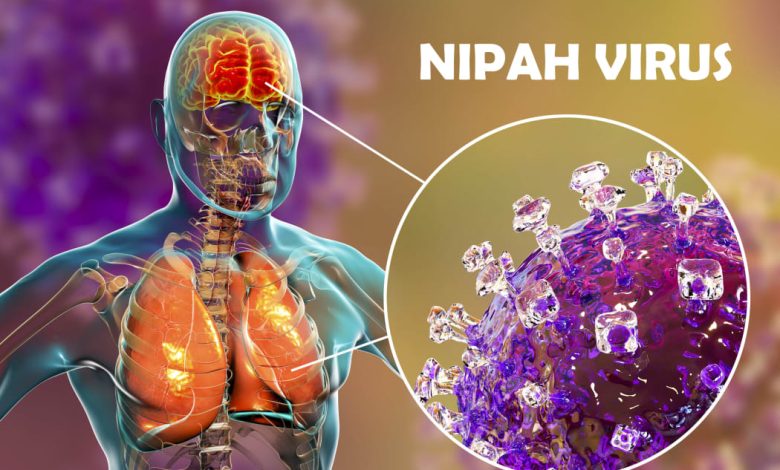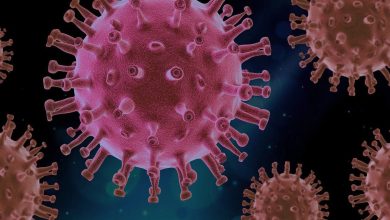Nipah Virus Symptoms in Humans Don’t Ignore These Warning Signs

Nipah virus symptoms in humans can be serious and should not be ignored. The Nipah virus is a rare but potentially deadly virus that can cause fever, headaches, vomiting, confusion, and other neurological symptoms. In some cases, the virus can cause seizures, coma, and even death. It is important to know the common Nipah virus symptoms in humans and to seek medical attention if any of these symptoms are experienced. Knowing the signs and Nipah Virus Symptoms in Humans can help diagnose the virus early and prevent further complications.
Understanding the Nipah Virus
The Nipah virus is a relatively unknown and misunderstood virus that poses a significant threat to human well-being. To truly grasp the seriousness of this virus, it is essential to understand its origins, behaviour, and impact on the human body.
Nipah virus was first identified in 1999 during an outbreak in Malaysia, where it caused severe respiratory and neurological illness in humans. Since then, there have been sporadic outbreaks in other countries, such as Bangladesh and India. The virus is believed to be transmitted from animals to humans, primarily through contact with infected bats or pigs.
Once a person becomes infected with the Nipah virus, it can rapidly progress to cause symptoms ranging from mild fever and headache to severe respiratory distress and encephalitis. The virus targets the central nervous system, leading to a range of neurological symptoms, including confusion, seizures, and coma.
Understanding the Nipah virus is crucial in preventing its spread and ensuring early detection and treatment. By recognizing the signs and Nipah Virus Symptoms in Humans, we can protect ourselves and our communities from this dangerous virus. In the following sections, we will explore the transmission, symptoms, infection, treatment, and prevention strategies for Nipah Virus.
Nipah Virus Symptoms
One of the most important aspects of protecting ourselves and our communities from the Nipah virus is being able to recognize its Nipah Virus Symptoms in Humans. The Nipah virus can cause a range of symptoms, some of which may initially be mild and easily dismissed. However, it is crucial not to ignore any potential signs of infection, as the Nipah virus can progress rapidly and lead to serious complications.
The Nipah Virus Symptoms in Humans include fever, headaches, vomiting, and confusion. These symptoms may resemble those of other common illnesses, which is why it is important to be aware of the possibility of Nipah virus infection, especially in areas where outbreaks have occurred.
In some cases, the virus can cause neurological symptoms, such as seizures, coma, and even death. These more severe symptoms require immediate medical attention and should not be taken lightly.
Recognizing the signs and Nipah Virus Symptoms in Humans is crucial for early detection and treatment. By being aware of these symptoms and seeking medical help promptly, we can protect our well-being and prevent further complications.
Nipah Virus Infection
Nipah virus infection is a serious condition that requires immediate medical attention. Once a person is infected with the Nipah Virus Symptoms in Humans, the virus rapidly progresses and can cause severe illness. The initial symptoms of Nipah virus infection are similar to those of other common illnesses, such as fever, headaches, and vomiting. However, as the infection progresses, it can lead to more severe Nipah Virus Symptoms in Humans, including respiratory distress and encephalitis.
In some cases, Nipah virus infection can even be fatal. It is important to seek medical help as soon as possible if you suspect you may have been exposed to the virus or are experiencing any of the symptoms mentioned. Early detection and treatment can significantly improve the chances of recovery and prevent further complications.
The best way to protect yourself from Nipah virus infection is to take preventative measures. Avoid direct contact with bats or pigs, as they are known to be carriers of the virus. Practice good hygiene, such as regular handwashing and proper food preparation. In healthcare settings, strict infection control measures should be followed to prevent the spread of the virus.
By being aware of the symptoms of Nipah virus infection and taking appropriate precautions, we can protect ourselves and our communities from this dangerous virus. Stay informed, stay vigilant, and seek medical help if needed.
Nipah Virus Treatment
Nipah virus treatment is crucial for the well-being and recovery of those infected. Currently, there is no specific antiviral treatment available for Nipah virus. However, supportive care and treatment can help manage the symptoms and improve outcomes.
Medical professionals may focus on providing relief from symptoms such as fever, headaches, and vomiting. This can include the use of antipyretics, fluids, and medications to control nausea and pain. In severe cases, patients may require hospitalization, where they can receive advanced care and monitoring.
It is important to note that early detection and prompt medical intervention greatly increase the chances of recovery. If you suspect you may have been exposed to the Nipah virus or are experiencing symptoms, seek medical help immediately. This will allow healthcare providers to evaluate your condition, provide appropriate treatment, and minimize the risk of complications.
Prevention is always better than treatment when it comes to infectious diseases like Nipah virus. By taking preventive measures, such as avoiding direct contact with bats or pigs and practicing good hygiene, we can reduce the risk of infection and the need for treatment altogether. Stay informed, stay safe, and prioritize your health and well-being.
The Transmission of Nipah Virus
The transmission of the Nipah virus is a critical aspect to understand in order to prevent its spread and protect our well-being. This virus is primarily transmitted from animals to humans, with infected bats or pigs being the primary sources. It is believed that humans can contract the virus through direct contact with the bodily fluids of infected animals or by consuming contaminated food.
What makes the transmission of the Nipah virus even more concerning is its ability to spread from human to human. Close contact with an infected person, such as through respiratory droplets or direct physical contact, can result in transmission. This means that even a single case of Nipah virus infection can potentially lead to an outbreak if proper precautions are not taken.
The importance of understanding the transmission of the Nipah virus cannot be overstated. By recognizing the various routes of transmission, we can take steps to minimize our risk of infection. Simple measures such as practicing good hygiene, avoiding contact with bats or pigs, and taking precautions in healthcare settings can significantly reduce the transmission of this dangerous virus.
How to Protect Yourself from Nipah Virus
To protect yourself from Nipah Virus Symptoms in Humans, it is crucial to take preventative measures and practice good hygiene. The first step is to avoid direct contact with bats or pigs, as they are known to be carriers of the virus. If you live in an area where outbreaks have occurred, it is important to be aware of any potential contact with these animals and take appropriate precautions.
Another key measure is to practice good hygiene. This includes regular handwashing with soap and water for at least 20 seconds, especially before eating or preparing food. It is also important to properly cook food and avoid consuming raw fruits or vegetables that may have been contaminated.
In healthcare settings, strict infection control measures should be followed to prevent the spread of the virus. This includes wearing personal protective equipment, such as masks and gloves, when caring for patients with suspected or confirmed Nipah virus infection.
Staying informed about the latest updates and recommendations from health authorities is also essential. By staying updated, you can make informed decisions and take necessary actions to protect yourself and your community from the Nipah Virus Symptoms in Humans.
Remember, prevention is always better than treatment when it comes to infectious diseases. By taking these simple but important steps, you can reduce the risk of Nipah virus infection and ensure your well-being and that of your loved ones. Stay safe, stay informed, and prioritize your health.



